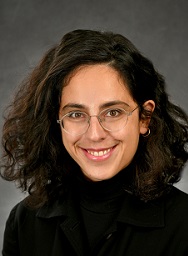Faculty
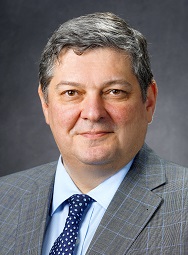
Tudor G. Jovin, MD
About Me
Tudor Jovin, MD is an expert in interventional and non-interventional treatment for the entire spectrum of stroke and cerebrovascular disorders. He was one of the nation’s first interventional neurologists, a medical subspecialty that uses minimally invasive technologies applied from within the vessels to diagnose and treat diseases of the arteries and veins of the head, neck, and spine such as acute stroke, carotid stenosis, intracranial aneurysm, and arteriovenous malformations.
In addition to his clinical experience, Dr. Jovin is known internationally for his research activities. He has served as principal investigator for several international clinical studies including REVASCAT, a randomized trial of endovascular therapy versus medical therapy for acute stroke within eight hours of symptoms onset conducted in Spain, and DAWN, a multicenter, international, randomized trial of endovascular therapy versus medical therapy in the beyond eight-hour time window. Both studies are considered landmark studies in the development of treatments for acute stroke and have been published in the New England Journal of Medicine. He is a member of the executive or steering committees for several multicenter national and international trials, and has participated as site principal investigator or co-investigator in multiple national and international trials.
Additionally, he serves as editorial board member for numerous medical journals. Dr. Jovin has published more than 300 articles in peer-reviewed journals or book chapters. The consequential nature of his research is evidenced by recently published studies that have identified Dr. Jovin as the highest impact author in the neuro-interventional field.
Prior to joining Cooper, Dr. Jovin was a professor of neurology and neurosurgery at the University of Pittsburgh School of Medicine and director of the Center for Neuroendovascular Therapy at the University of Pittsburgh Medical Center (UPMC). At UPMC, he also served as the director of UPMC’s Stroke Institute, one of the leading centers for stroke care, education, and research in the world.
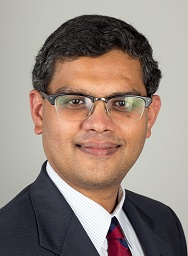
Ajith J. Thomas, MD
About Me
Prior to joining Cooper University Health Care as Chief of Neurosurgery, I spent 12 years at Beth Israel Deaconess Medical Center (BIDMC), building their program into one of the best cerebrovascular centers in the United States.
I have always strived to innovate and do research that is meaningful. I have had a natural curiosity about the working of things in general. In Pittsburgh, during my fellowship, I was closely involved in developing the field of endoscopic skull base surgery with Amin Kassam. Many of the seminal papers describing this technique, which was to have profound influence on neurosurgery, were written by Dr. Kassam and me.
Clinical innovation – This has taken place mainly in the field of cerebrovascular neurosurgery. My work has focused on multiple areas including brain aneurysm treatment, arteriovenous malformation, stroke and arteriovenous fistulas. A classification of carotid cavernous fistulas that I have developed is now known as the Thomas classification and is widely used all over the world.
In addition, I have spearheaded the wide adoption of flow diverter technology and improved its safety in patients, publishing more than 50 peer reviewed papers in the literature. More than 100,000 flow diverters have been placed globally, with our work playing a role in the expanded use of these devices. I edited a special edition of Neurosurgery (neurosurgery’s flagship journal) on this technology, published in January 2020. I have presented data on this technology at multiple meetings nationally and internationally and am recognized as a leading expert globally.
Technological advancement – I have been involved in various technology development projects. One such project involved developing a safe cranial drill with Harvard University which has been awarded a US patent.
Artificial intelligence – I have worked with L Pixel from Tokyo to develop automated MRI interpretation of brain aneurysms and with Qure.ai from Mumbai to assess hydrocephalus. Some of these data sets involve tens of thousands of patients. I have also been engaged with leadership of IBM – Watson Health to create a Neuroscience Center within IBM.
Basic science – I am an associate member of the Broad Institute, one of the world’s premier institutes focused on genomics. I have isolated early endothelial cells (periventricular endothelial cells) from the developing brain in the mouse. This was featured on the cover page of Brain Research and will have wide implications in our understanding of autism, schizophrenia, brain tumors, Alzheimer’s and their therapy.
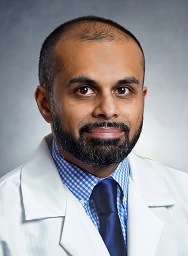
Hamza A. Shaikh, MD
About Me
Dr. Shaikh started the Endovascular Neurosurgery/Neurointerventional program at Cooper Hospital in 2014, and since then has built the program to become one of the best in the region. He came to Cooper after his Neuroradiology and Neurointerventional training at the Hospital of the University of Pennsylvania. Dr. Shaikh believes in treating patients and their families with respect, courtesy, and mutual understanding. He understands how scary things may become during a very vulnerable time in their lives and he feels that it’s his obligation to help families navigate the health care system for the benefit of their loved ones.Dr. Shaikh is actively involved in overseeing the Neurointerventional Surgery program, and the fellowship training program which was started in 2021.
He enjoys teaching faculty, students, residents, and fellows throughout their training to help them realize their true calling as physicians and caretakers of the health care system. Dr. Shaikh and the Neurosciences team is involved in many ground breaking and important research projects throughout the world. He also enjoys working with startup companies and artificial intelligence companies to develop tools that can help his patients improve their lives. His clinical interests include evaluation and treatment of cerebral aneurysms, arteriovenous malformations, strokes, spinal fractures. He also performs complex brain/head/neck/spine biopsies.
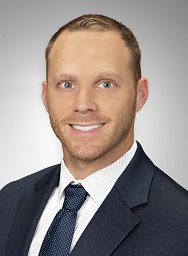
Daniel A. Tonetti, MD, MS
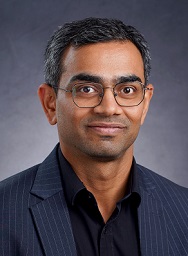
Pratit D. Patel, MD
